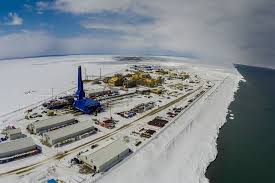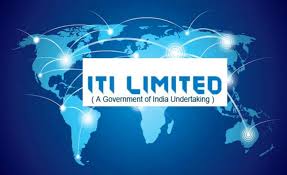 Image Source: Swarajya
Image Source: Swarajya
The governor of Russia’s Sakhalin region has expressed optimism about Exxon Mobil’s potential return to the Sakhalin-1 oil and gas project, highlighting it as a positive development for the local energy industry. This prospect comes after a series of political and diplomatic moves, including a decree by Russian President Vladimir Putin allowing foreign investors to possibly regain stakes in the project. With the backdrop of ongoing geopolitical tensions and complex sanctions, Exxon's re-entry holds significant implications for Russia’s energy sector and international business relations as of September 2025.
Key Developments on Exxon’s Potential Return
Russian President Vladimir Putin’s recent decree extends the sale period for unclaimed Exxon shares in Sakhalin-1 until 2026, providing a legal pathway for the U.S. energy giant to reclaim its interests.
The decree aligns with diplomatic efforts, including a summit between Putin and former U.S. President Donald Trump held in Alaska, discussing potential business partnerships and peace initiatives in Ukraine.
Exxon had originally exited Sakhalin-1 in 2022 due to sanctions imposed following Russia’s invasion of Ukraine, incurring a $4.6 billion impairment charge.
Sakhalin-1 project consortia also include Russian firm Rosneft, India’s ONGC Videsh, and Japan’s SODECO, with Rosneft currently operating the project after Exxon’s exit.
Exxon executives have held confidential discussions with Rosneft, seeking to re-enter the project contingent upon government approvals and possible easing of sanctions.
Insights from Sakhalin’s Governor and Industry Context
Valery Limarenko, Sakhalin’s governor, emphasized the benefits of Exxon's return, acknowledging Russia's own extraction technologies but also noting the advantage of collaborating with Exxon’s expertise. He described Exxon’s comeback not only as possible but important for advancing the region’s oil and gas development. Limarenko further criticized previous U.S. policy moves, suggesting the withdrawal of Exxon was against economic interests and expressed hope that cooperation could resume if political conditions allowed.
Background and Broader Implications
Exxon Mobil has been a major player in Sakhalin-1 since 1995, holding a 30% stake and acting as operator alongside Rosneft and other partners. The company’s exit in 2022 followed intensified sanctions and Moscow’s seizure of the project’s assets into a Rosneft subsidiary. Although other foreign stakeholders retained their shares, Exxon was unique in losing its stake, blocked from selling by Russian authorities.
The potential re-entry of Exxon Mobil comes amid broader geopolitical negotiations that may include sanctions relief as part of a peace process related to the Ukraine conflict. The deal is seen as a complex interplay of economic, legal, and reputational factors with Exxon balancing the prospect of recovering a lucrative asset worth billions against ongoing sanctions and climate commitments.
The Sakhalin-1 project itself remains one of Russia’s largest oil and gas developments, with reserves estimated at 2.3 billion barrels of oil and 17.1 trillion cubic feet of gas, strategically located near Asian markets. Russia’s energy sector continues to be a significant revenue source, generating over $235 billion in 2024 despite Western sanctions, underlining the economic incentive to facilitate Exxon’s return.
Overview of Challenges and Strategic Considerations
Exxon faces navigating U.S. sanctions including Executive Orders forbidding technology transfers to Russian projects and new legislative constraints.
Approval from U.S., Russian, and possibly other governments is required for the re-entry to move forward legally.
The move reflects complex geopolitical balancing—Exxon’s re-entry could symbolize a strategic business recalibration and signal easing tensions.
The project tests Western companies' tolerance for engagement in sanctioned markets amid climate ambitions and reputational risks.
Exxon’s return discussions involve U.S. lobbying efforts for exemptions and political support, underscoring the delicate diplomacy behind such a decision.
Summary
The possible return of Exxon Mobil to the Sakhalin-1 oil and gas venture is viewed by Sakhalin’s governor as a beneficial step for the local energy industry, advancing regional development through combined expertise. This development follows Russian presidential decrees creating frameworks for foreign investment returns amid ongoing geopolitical developments. While Exxon weighs the risks and opportunities, the move symbolizes potential thawing in Russia-U.S. energy relations, contingent on political agreements and sanctions relief. The outcome could have profound implications for the global energy landscape, Russian economic strategy, and Exxon’s Arctic resource ambitions.
Source: Reuters
Advertisement
Advertisement







